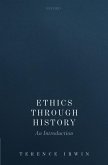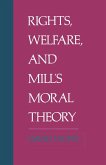W. J. Mander examines the nature of idealist ethics, that is to say, the form and content of ethical belief most typically adopted by philosophical idealists. While there exist many studies of the ethical views of individual idealist philosophers there has been no literature at all on the notion of idealist ethics per se. Never is it asked: at which points, if any, do the ethical systems of all these thinkers overlap, and what relation, if any, do such commonalities bear to their authors' idealism? Never is the question posed: were you suddenly to become convinced of the truth of some form of philosophical idealism what revisions, if any, would that necessitate in your conception of the truth, nature, and significance of ethical judgements? The inquiry has two aims. The first is historical. From the record of past philosophy, Mander demonstrates that there exists a discernible idealist approach to moral philosophy; a tradition of 'idealist ethics.' He examines its characteristic marks and varieties. The second aim is apologetic. Mander argues that such idealist ethics offers an attractive way of looking at moral questions and that it has much to contribute to contemporary discussion. In particular he argues that Idealist ethics have the power to cut through the sterile opposition between moral realism and moral anti-realism which has come to dominate contemporary thinking about ethical questions. To be an idealist is precisely to hold that the universe is so constituted that things are real if and only if they are ideal; to hold that uncovering in something the work of mind makes it more not less significant.
Dieser Download kann aus rechtlichen Gründen nur mit Rechnungsadresse in A, B, BG, CY, CZ, D, DK, EW, E, FIN, F, GR, HR, H, IRL, I, LT, L, LR, M, NL, PL, P, R, S, SLO, SK ausgeliefert werden.









